Results
-
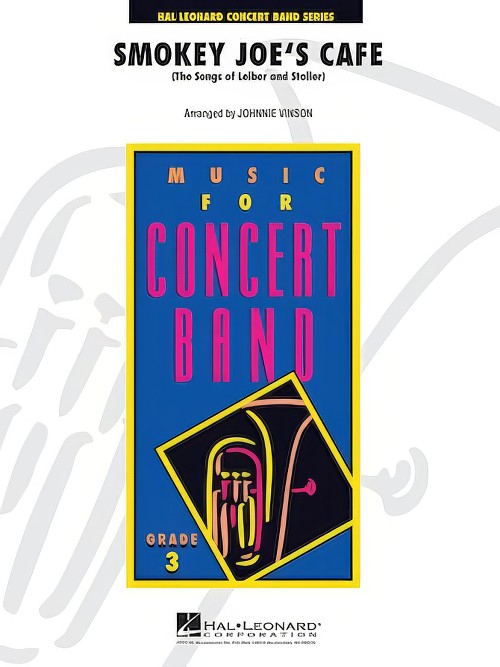 £64.99
£64.99Smokey Joe's Cafe (Concert Band - Score and Parts) - Leiber & Stoller - Vinson, Johnnie
Smokey Joe's Cafe has been packing them in on Broadway since its opening, featuring some of the best rock 'n roll songs ever written. Jerry Leiber and Mike Stoller's songs are spotlighted here in Johnnie Vinson's superb medley for concert band. Includes: Baby, That Is Rock & Roll, Kansas City, Yakety Yak, Charlie Brown, Hound Dog, Love Potion Number 9, On Broadway, and Stand By Me.
Estimated dispatch 7-14 working days
-
 £64.99
£64.99Troika Rushing (Concert Band - Score and Parts) - Johnson, Timothy
Troika Rushing is one of many popular traditional folk songs that exist in Russia. Though not all Russian folk songs are in the minor key, many of them are, including this one. All of the wind instruments take their turn in playing the melody making it enjoyable for all to play.Duration: 2.00
Estimated dispatch 7-14 working days
-
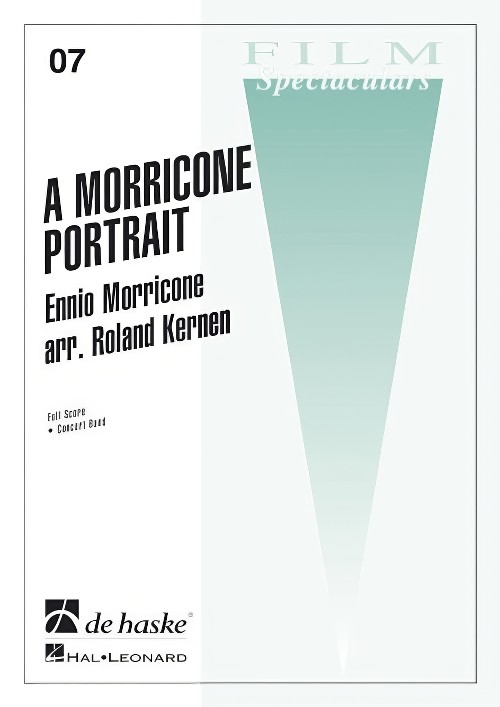 £109.99
£109.99A Morricone Portrait (Concert Band - Score and Parts) - Morricone, Ennio - Kernen, Roland
Inspired by the music of legendary Italian composer, Ennio Morricone, A Morricone Portrait is a skilfully arranged piece from Roland Kernen containing some of Morricone's most beautiful melodies. Songs include: My Name Is Nobody, Metello and Here's to You. These familiar songs will be well received by any audience!Duration: 8:00
Estimated dispatch 7-14 working days
-
 £69.99
£69.99Shore to Shore (Concert Band - Score and Parts) - Curnow, Paul
In the early days of the United States, a main source of transportation was the many waterways, rivers and the Great Lakes. From this focal point of commerce and social activity came many wonderful folk songs. Shore to Shore uses two of these sailing songs. Blow ye winds blow and Leave her no more.Duration: 2.00
Estimated dispatch 7-14 working days
-
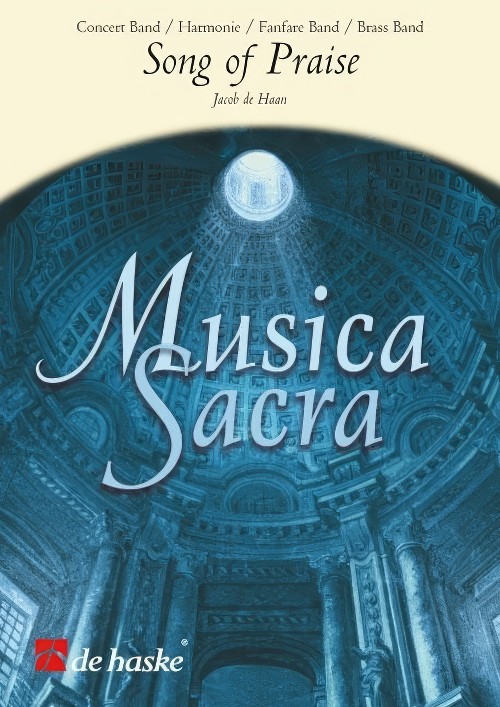 £76.99
£76.99Song of Praise (Concert Band - Score and Parts) - De Haan, Jacob
Songs of Praise is a beautiful adaptation of a Netherlands church melody to Psalm 150. The composer Jacob de Haan shows his deft hand at arranging by setting the melody in creative and varied instrumentations. His Songs of Praise is perfectly suited to worship or indeed as a concert intermezzo.Duration: 2:00
Estimated dispatch 7-14 working days
-
 £84.99
£84.99Als die alte Mutter (Soprano Solo with Concert Band - Score and Parts) - Dvorak, Antonin - Takahashi, Tohru
Als die alte Mutter (Songs My Mother Taught Me) is the fourth of Antonn Dvorak's Gypsy Songs (Opus 55), a cycle he composed in the year 1880. This moving song was written to a German poem by Adolf Heyduk, and in the course of time, it has been performed and recorded by great singers like Nellie Melba, Joan Sutherland and Rene Fleming. The appealing melody is known to a large public. In this edition, two versions have been combined: an instrumental adaptation of the song, and an adaptation for soprano with a concert band accompaniment - both made by Tohru Takahashi.Duration: 2:00
Estimated dispatch 7-14 working days
-
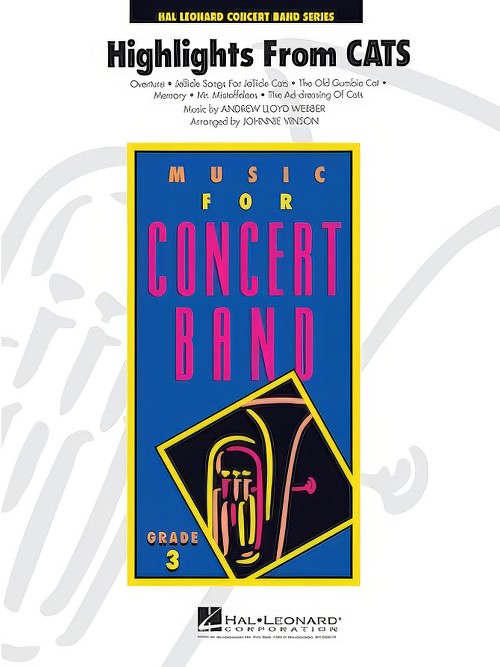 £64.99
£64.99CATS (Highlights) (Young Band) - Webber, Andrew Lloyd - Vinson, Johnnie
This item may be Print on Demand (approx 3 weeks). Andrew Lloyd Webber's musical sensation CATS has given us some of the most exhilerating songs in musical theater today. Johnnie Vinson's flair for writing accessible arrangements for younger players makes this medley a guaranteed success. Includes: Overture, Jellicle Songs For Jellicle Cats, The Old Gumbie Cat, Memory, Mr. Mistoffelees, and Addressing Of Cats
Estimated dispatch 7-14 working days
-
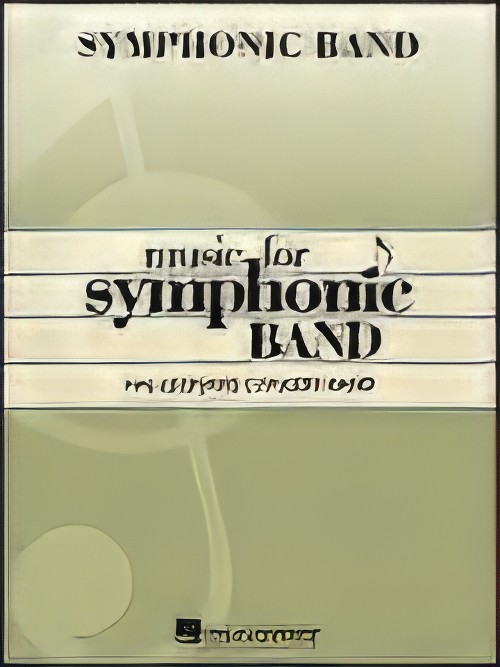 £76.99
£76.99CATS (Selections from) (Concert Band) - Lloyd Webber, Andrew - Edmondson, John
Andrew Lloyd Webber's musical sensation CATS has given us some of the most exhilerating songs in musical theater today. This superb medley by John Edmondson captures the mystique and emotion of the hit show that repeatedly sold out in New York. Featuring clever songs about cats such as: Old Gumbie Cat, Skimbleshanks, Jellicle Cats and Memory
Estimated dispatch 7-14 working days
-
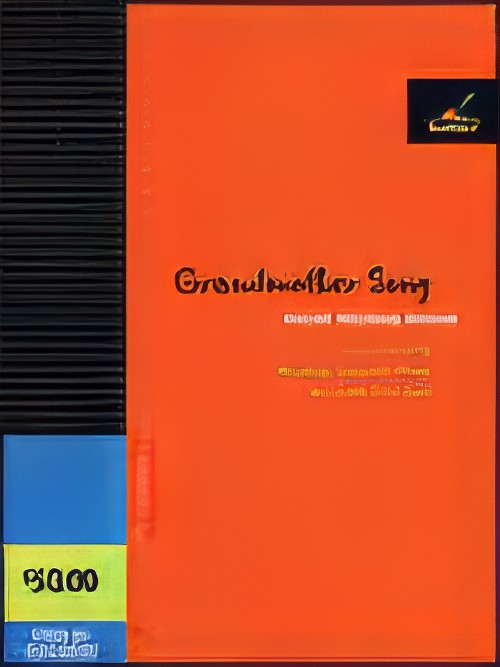 £57.50
£57.50GRANDMOTHER SONG (BandQuest) - Davids, Brent Michael
"Grandmother Song" is an introduction to the Mohican tradition of "sung syllables," or what Native Americans call "vocables." Combining them with traditional wood flute songs, composer Brent Michael Davids offers a fresh look at the "sound" of Native American songs. Band instruments are performed less as musical instruments and more as talking sticks, singing reeds, rustling winds and shooting thunder. Through this beautiful ballad, students are given the materials to understand how Native Americans celebrate the world around them through the blending of words and song. (Includes score and parts.)
Estimated dispatch 7-14 working days
-
 £84.99
£84.99Let's Celebrate Wind Band Set (Score & Parts)
Is there something to be celebrated? Then let's play 'Let's Celebrate'! This four-part suite has been based on two birthday songs: the world-famous 'Happy Birthday to you' (which is also sung in many other languages), and the Dutch song 'Lang zal hij/zij leven'. The Fanfare opens in grand style with the motif of 'Lang zal hij leven' and is followed by a cheerful March in which the motifs of both songs can be heard. The third part, Song, forms a moment of contemplation, and the birthday presents are unwrapped by the percussion section in the fourth part, Surprise Party. The yell may be adapted to the occasion. (the sleigh bells caused the composer to note down this somewhat peculiar yell). Of course everybody is expected to join in. 07:00
Estimated dispatch 7-14 working days
